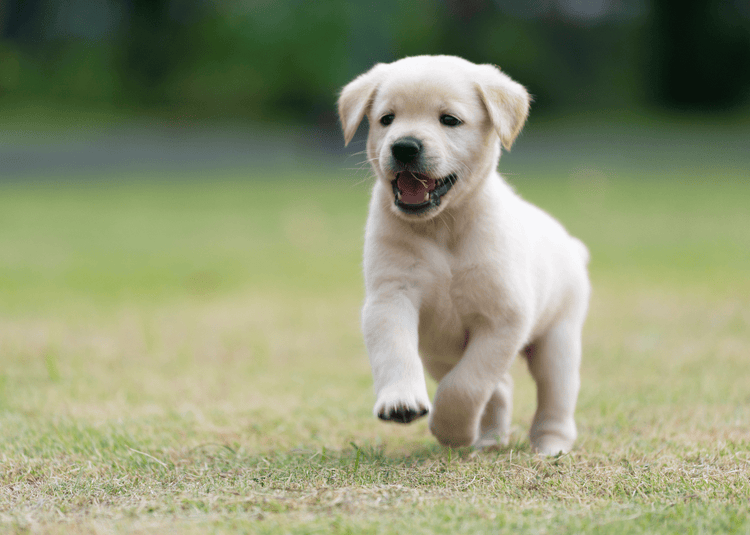
What to Feed Your Golden Retriever Puppy
Golden Retrievers are happy go lucky friends of all in the dog world. These majestic goofs currently rank as the third most popular breed according to the AKC. With their easy-going temperament, love of fellow dogs and people, it’s easy to see why this breed holds such a place of honor in people’s hearts.
When you first bring home your Golden Retriever puppy one of your first concerns will be their diet. We’ll break down some of the most common practices when it comes to feeding Golden Retriever puppies to help you tackle your pet’s puppyhood diet.
After your puppy has transitioned to solids, which will happen before you bring him home, most vets recommend feeding puppies three times a day. By spacing meals out in smaller increments over the course of a day your puppy will be more satisfied after finishing his meal, and he’ll be on the right course as far as weight control and bloating goes. Golden Retrievers are characteristically known for their predisposition to obesity; this makes the concept of “free feeding” tricky for this breed. “Free feeding” is the practice in which food is made available to dogs at all times, but this practice can have many downsides. For example, when food is left available to your puppy it will be difficult for you to determine when he will need to go potty, making potty training much harder.
An ideal feeding schedule for a Golden Retriever puppy goes as follows:
- Breakfast between 6-7am
- Lunch at noon
- And dinner between 5-6pm
Most owners switch to two meals a day when their puppy is around 12 weeks old, of course, each Golden Retriever is different. Make sure that you are consulting with your vet before making any changes to your puppy’s diet or feeding schedule.
Some Golden Retriever puppies will get over excited at feeding time and inhale their food too quickly, one solution to this problem is to use a slow bowl feeder. These bowls have obstacles inlaid in their design that limit how much food your Golden Retriever puppy can eat at once. Puppy foods are specially formulated to support your puppy’s specific needs. For example, puppy food will have twice the daily nutrient requirements of adult food to assist your puppy as he develops his bones, muscles, joints, internal organs, and immune system. An ideal puppy wood will include all the nutrients that your puppy needs to grow; this usually factors out to a formula having at least 30% protein, vitamins, minerals, and a high-fat content to promote energy.
But when your vet wants to transition your puppy from puppy food to an adult formula make sure that you’re selecting a brand that caters to the breed’s specific needs. According to the AKC, Golden Retrievers have unique digestive systems that can benefit from added support in their meals. Additionally, you’ll want to select a large breed formula to complement your Golden Retriever’s size.
If you’re unsure about which puppy or adult food to choose for your Golden Retriever we recommend that you talk to your vet. As mentioned above, each puppy is different. Different hereditary diseases or traits can cause a puppy to need more or less specific ingredients than others. Your vet will be more than willing to give you a few recommendations when it comes to choosing the right dog food for your Golden Retriever.